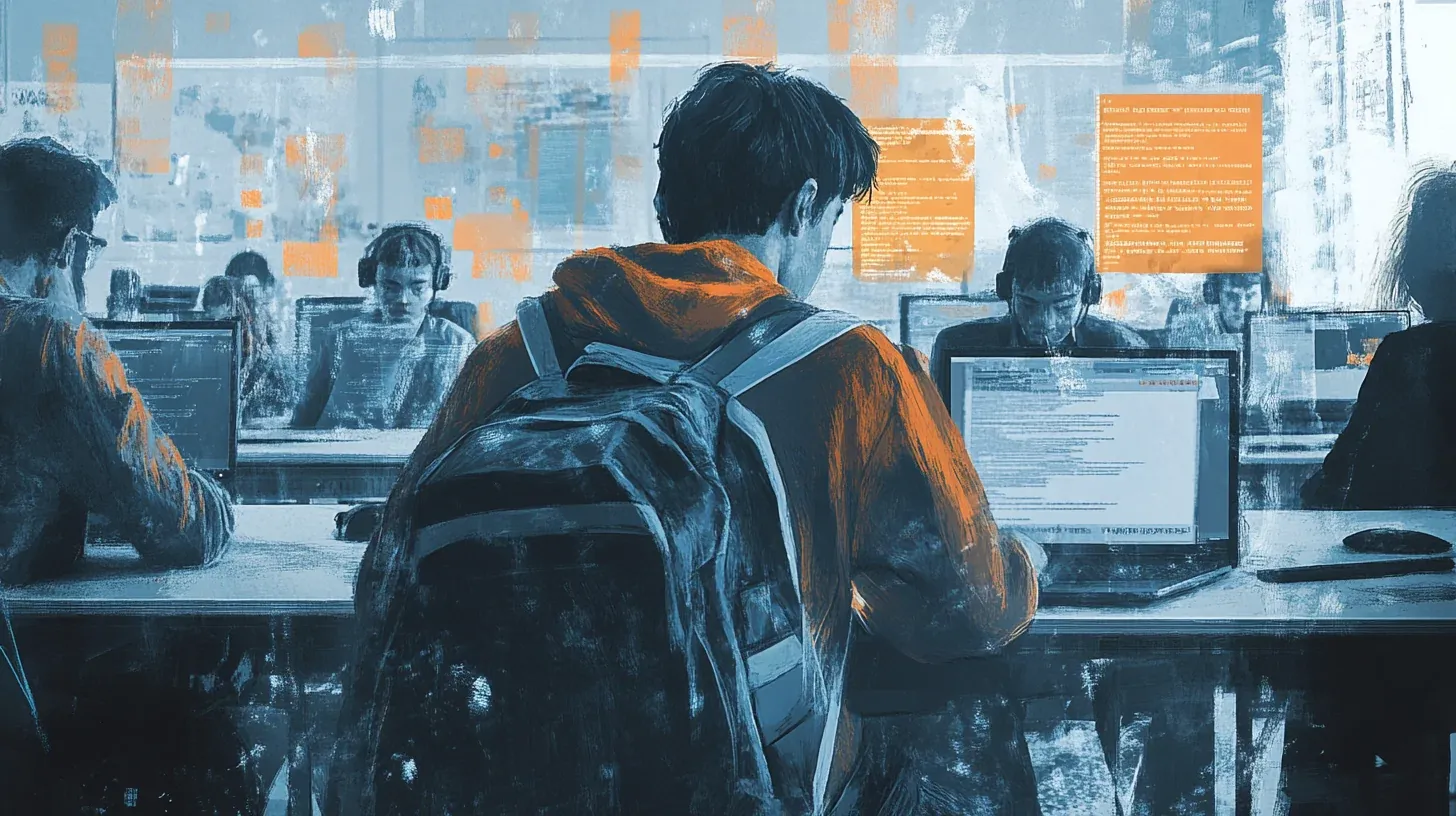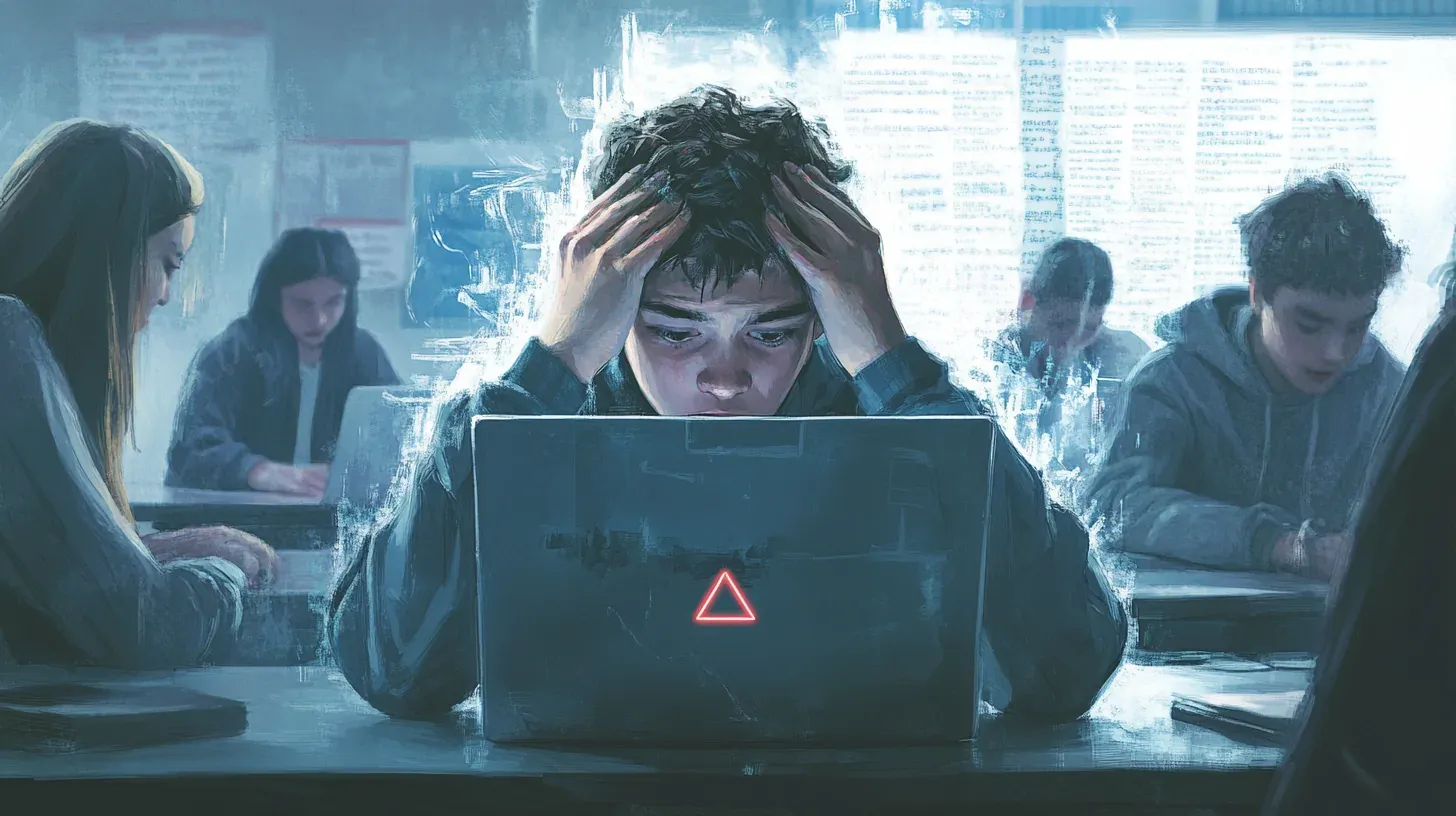This week is about artificial intelligence at EUD and a new project supported by Novo Nordisk with 5.4 million. At the same time, we look at DR's media analysis, where they have investigated young people's use of generative AI, which is somewhat higher than the rest of the population. In addition, we look at the ongoing transformation of the internet, where generative AI will play a big role when we write on the web.
We also link to a very interesting article that discusses how far we are in artificial intelligence taking over the tutoring of students.
Generativ AI i STEM-undervisningen på EUD
Generative AI in STEM teaching at EUD is a new nationwide research and development project led by Absalon College of Applied Sciences. It aims to help vocational schools learn more about how AI can be meaningfully included in STEM teaching in technical vocational education. The Absalon College of Applied Sciences is at the forefront of the project, together with the Center for IT in the Teaching of Vocational Education and Training (CIU) and the Professional College of Applied Sciences VIA. Five vocational schools also participate in the project – Tradium, Himmerland's vocational and upper secondary education, Nordvestsjælland's vocational and upper secondary education, Syddansk Erhvervskole, and NEXT. In addition to the eight parties, the project will receive sparring from a follow-up group of representatives from the Danish Education Association, DEG, EVU, Industriens Uddannelser, Byggeriets Uddannelser, and Knowledge Center for Digital Technology Understanding.
The project 'Generative AI in STEM teaching at EUD' is supported with almost DKK 5.4 million from the Novo Nordisk Foundation and will run from 01.01.24-30.06.26.
We look forward to following the project and learning more about it. You can find further information below:

DR: Is AI common knowledge or hype?
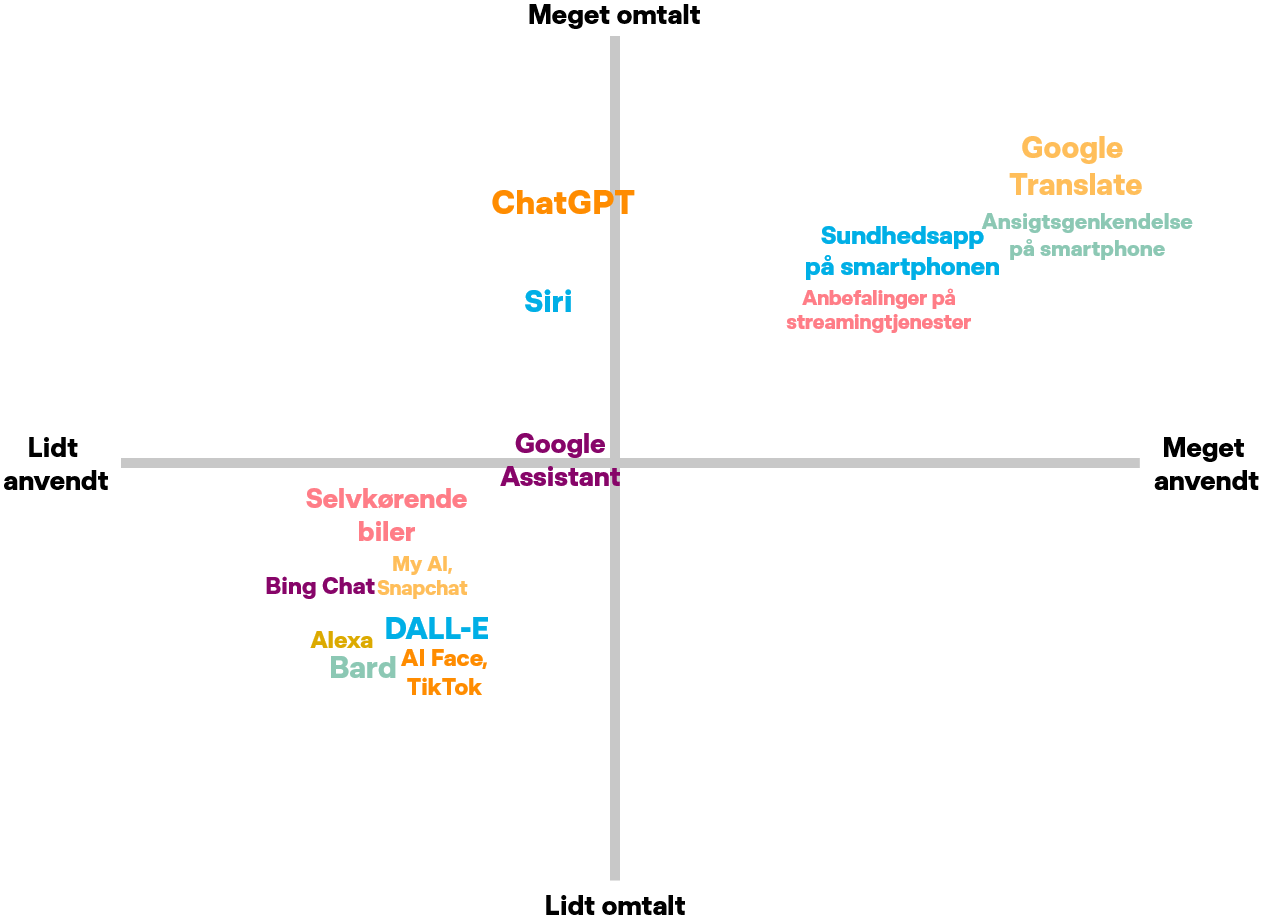
DR has just published their Media Development 2023, and they have also investigated the use of AI-based technologies. ChatGPT seems to have become popular among students, and Google Translate seems to be widely used.
For ChatGPT, we see that 27% of men use it at least occasionally, while more than half (55%) of 18-29-year-olds do, and 63% of students surveyed do.
The survey shows how artificial intelligence is becoming a central part of the student's lives, but it also shows that a large part of the Danish population has not heard of ChatGPT.
Just over one in five respondents use ChatGPT to some extent, while 76% rarely or never do so. And then we can see that more than half of the respondents do not think they have heard of ChatGPT at all. So even though you might hear ChatGPT mentioned here, there and everywhere, there are quite a few Danes who don't feel the same way as you.
Read the full study below:

Google is changing the internet as we know it
We recommend reading John Herrman's article below, which shows how the Internet is developing and how artificial intelligence plays a major role in our communication on the Internet.
Next month, Google will begin testing a new feature in Google Chrome where generative AI is deeply integrated into the browser. This means that in all places where you can write a text, e.g., post on Facebook, review on a shop page, or when writing with friends, you want an assistant to help you write. It can be writing the entire text for you, correcting the tone, or proofreading. As a consequence, AI-generated content will affect the content on the web, and what does it do to our way of communicating with each other when we do not know whether it is a language model or a human that is being written with?
In a teaching context, it can mean that small tests in digital learning tools don't matter because generative AI just fills them in for the student anyway. At the same time, it will affect how and why we write and whether it is even necessary to have written skills...

/cdn.vox-cdn.com/uploads/chorus_asset/file/25243595/ChromeAI.jpg)
A Technologist Spent Years Building an AI Chatbot Tutor. He Decided It Can't Be Done
This week, we also focus on an article in which Satya Nitta, formerly employed at IBM and involved in the Watson system, examines the use of AI tutoring systems in the education sector and the complex challenges this entails. Satya Nitta has been working on creating an AI tutor for five years and has concluded that AI in its current form cannot mimic the deeply human process that tutoring in education requires.
“We’ll have flying cars before we will have AI tutors. It is a deeply human process that AI is hopelessly incapable of meeting in a meaningful way. It’s like being a therapist or like being a nurse.” - Satya Nitta
Therefore, we should probably see artificial intelligence more as an auxiliary tool for the teacher, not a replacement.
“What does a human tutor do well? They know the student, and they provide human motivation,” he adds. “We’re all about the AI augmenting the tutor.” - Satya Nitta
Therefore, we will also have to consider both the possibilities and limitations of including artificial intelligence in guidance at our educational institutions.
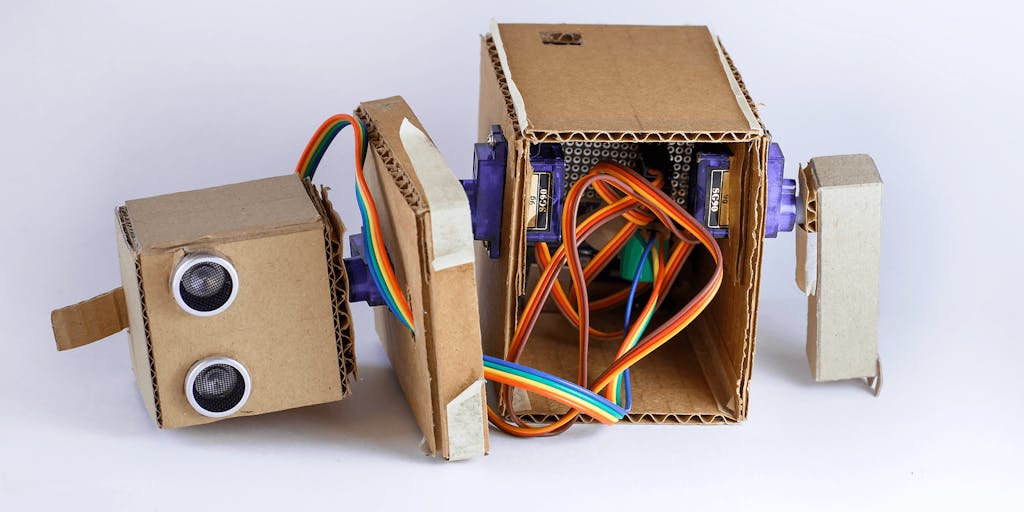
News of the week


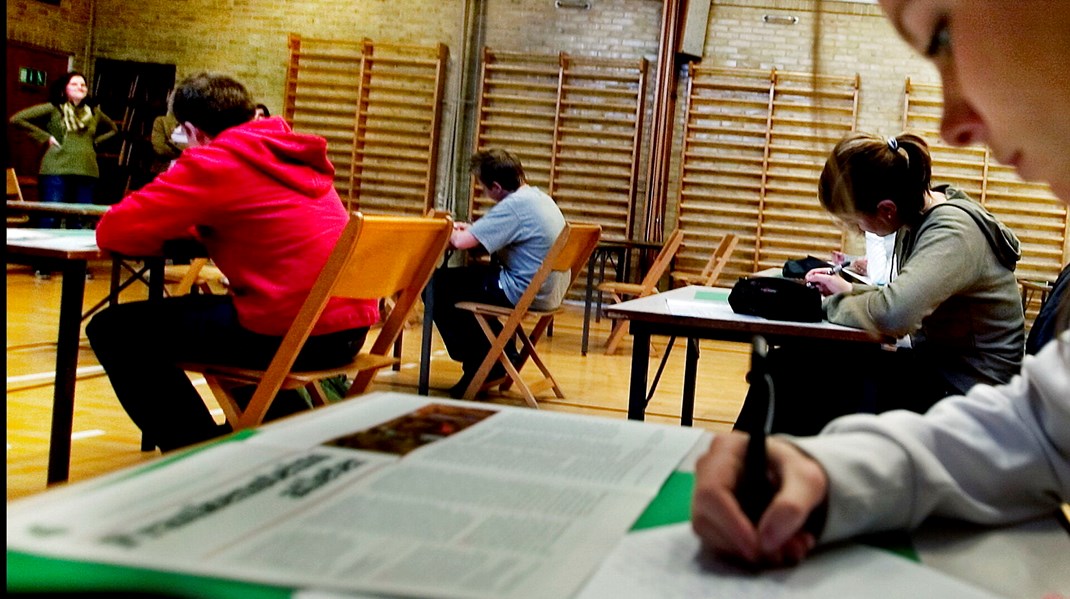



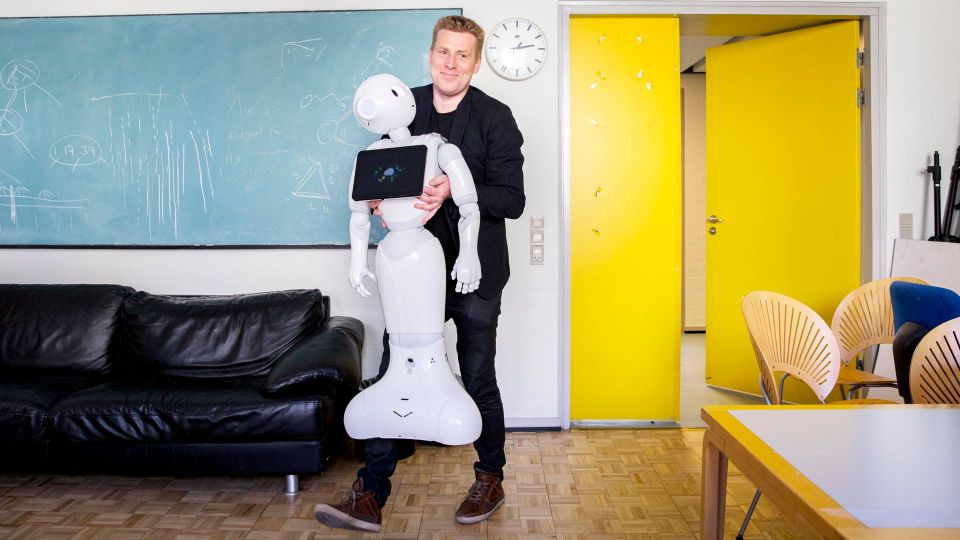
Bag betalingsmur

Bag betalingsmur

Bag betalingsmur

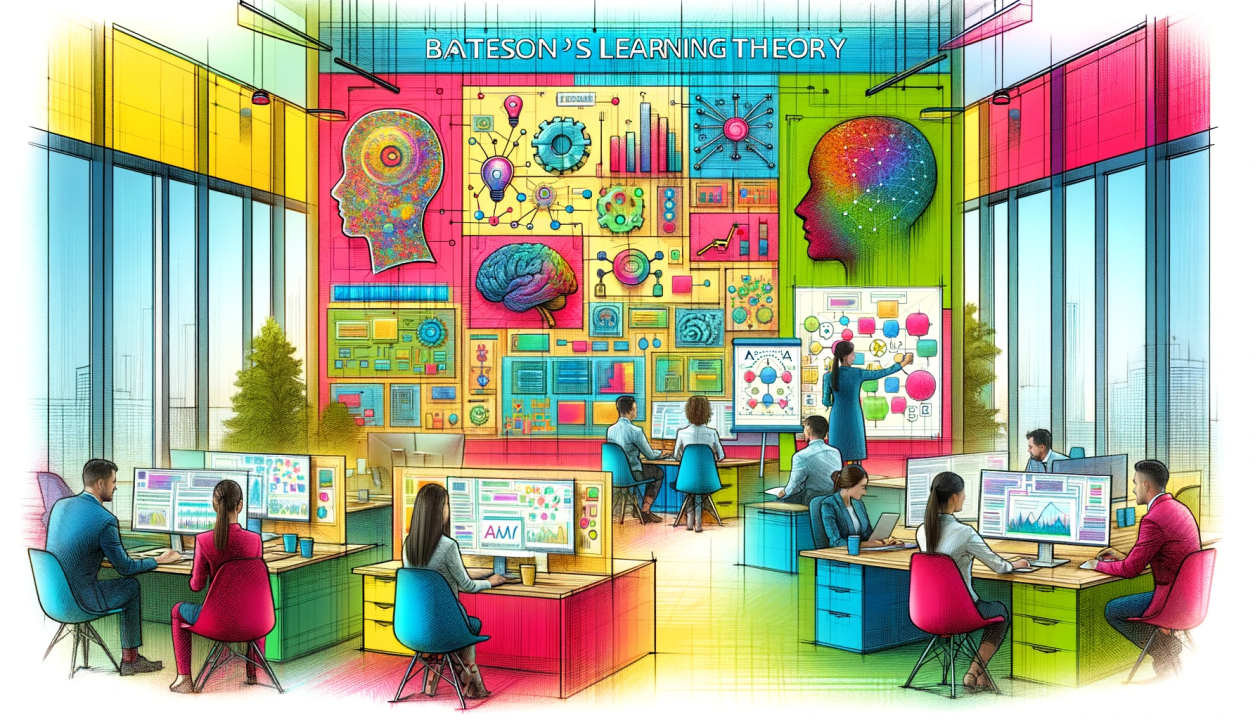
Recommendation of the week
Is AI cheating or smart in high school?
This week's recommendation is an excellent podcast from Radio 24syv, where the program Ekstremt Online deals with artificial intelligence in school. In the episode, the host, Nanna Schmidt Nordestgaard, conducts conversations with high school teachers and students and talks to researcher Sine Zambach about whether artificial intelligence should be part of school education.
Listen to the podcast below (in danish):















